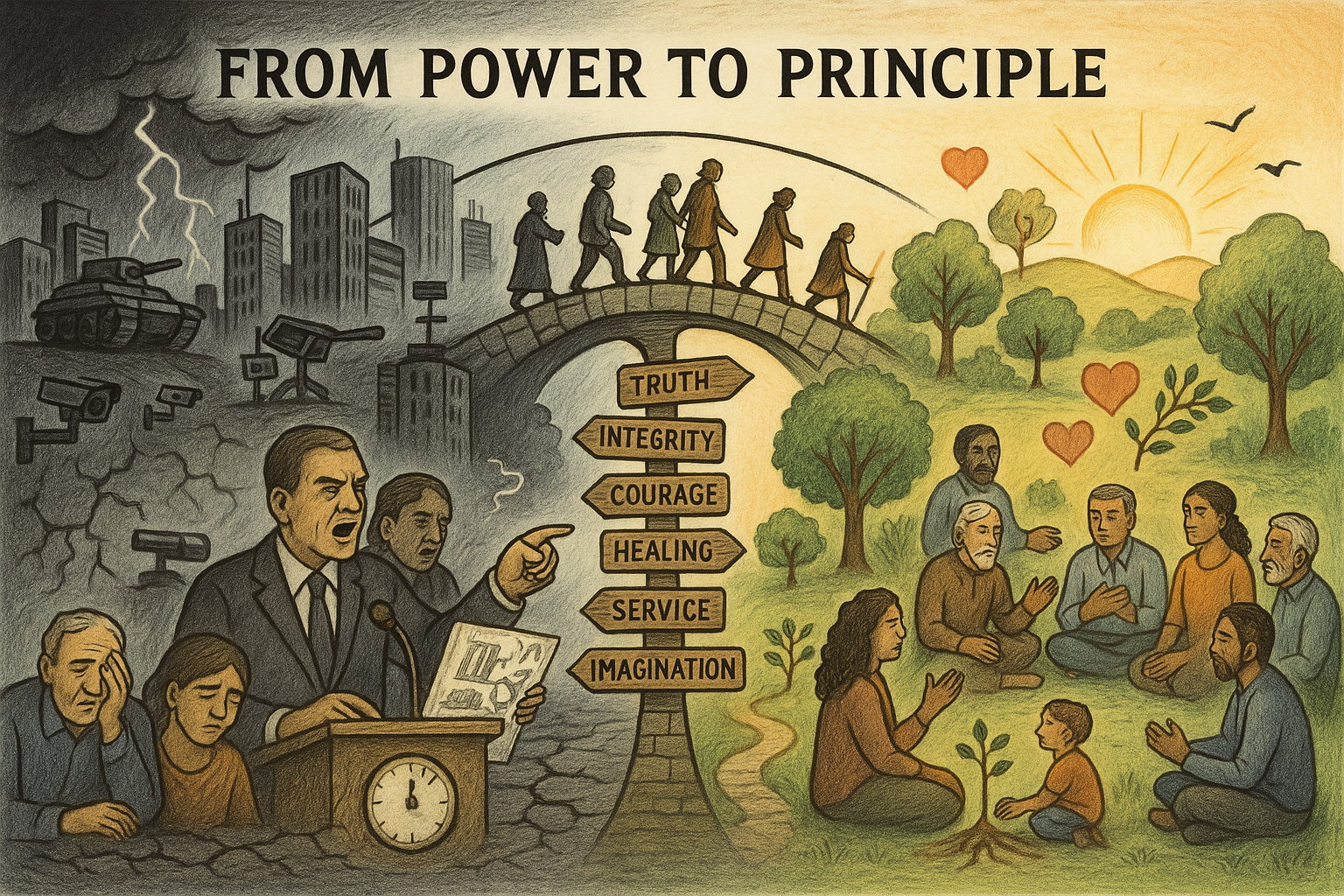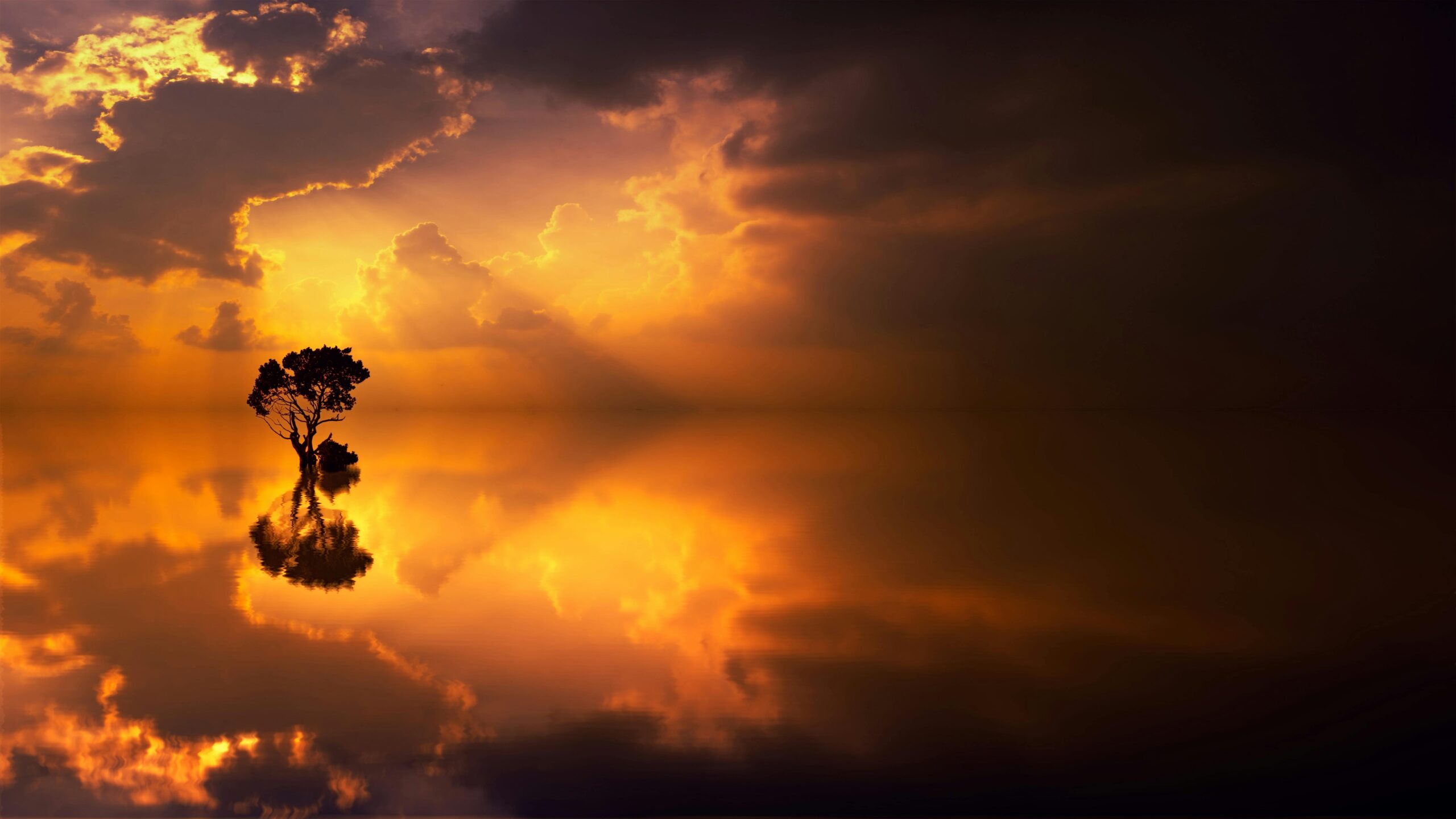Reimagining leadership in a world of permanent crisis
Robert Kaplan has long been seen as one of the great oracles of global affairs. His geopolitical analyses are sharp, often sobering, and rarely idealistic. In his most recent book titled Waste Land, Kaplan doubles down on a worldview where geography and hard power—rather than ideals or values—determine the course of history. In his eyes, the world is in a state of permanent crisis, governed not by cooperation or vision, but by brute force and strategic advantage. It’s a sobering, confronting message. But perhaps more confronting is how much truth there is in it.
When we look around, we see a world where power struggles – be it political, military, economic, gender or the overarching one: climate – dominate daily headlines, where military build-ups and resource competition continue to eclipse diplomacy or long-term thinking. From Afghanistan to Ukraine to Gaza to Iran to the accelerating climate crisis, witness the media coverage of an every increasing number of ‘weather events’, we are witnessing the effects of leadership rooted in control, extraction, exploitation and fear. Crisis has become not just a condition, but a mode of governance.
But what if this isn’t the only way? What if we are not doomed to be ruled by the right of the strongest?
The poverty of power
There’s a paradox at the heart of power-based leadership: the more it asserts itself, the more fragile the world becomes. Power built on fear, dominance or competition might achieve short-term control, but it sows the seeds of deeper unrest—socially, politically, militarily, economically, ecologically. This leadership model thrives on crisis because it legitimizes its own authority through instability.
It’s a closed loop: the world is dangerously volatile, chaotic and uncertain, so we need strong leaders; strong leaders act forcefully; their actions generate backlash and conflict; and so the cycle continues.
It’s easy to become numb to this logic, to accept it as the way of the world. But I believe many of us quietly, persistently, are asking another question: what about the alternative?In service of work, we’ve outsourced or sacrificed nearly everything that anchors us in our humanity.

The return of ideals and values
I don’t believe (a return to) ideals and values are naïve. I believe they are absolutely necessary. But to truly shape our leadership, they need to be embodied—not just spoken.
What might leadership look like if it were grounded in truth, integrity, community, dignity, interdependence, and care—not as abstract ideals, but as lived values that guide decision-making, relationships, and responsibility?
We’ve seen glimpses. The well known moral courage of the likes of Mandela, Gandhi, Thich Nhat Hanh and other inspiring leaders. The fierce stewardship embedded in Indigenous governance. The work of those who lead with integrity like Schindler, but also closer to home in the case of the Afghan human rights defenders, Ahmad Reshad Attai, Rebecca Trotter, Nadja Müller, Liliana Harrington, in the case of Ugandan human trafficking, Sarah Arao, in Brasil Suzana Dabess’s work to support women coming out of violent relationships and so many others inspiring examples, even when it comes at personal cost. These are not just examples of visionary thinking—they are examples of values in action.
In smaller, quieter ways, I see this in the organisations and communities I work with—where leaders ask not “how do we win?” but “how do we serve?” In fact, just yesterday I had another conversation with a senior strategy consultant who has fundamentally changed the orientation of his work to focus on “how do I serve”—one of an increasing number of similar conversations I have.
When values like humility, justice, and compassion are placed at the centre of leadership, something shifts. Leadership becomes less about performance, and more about presence. Less about (the illusion of) control, and more about coherence. Less about protecting power, and more about stewarding possibility (essential for creativity and innovation to contribute to solving the huge sustainability challenge).
This kind of leadership doesn’t deny crisis, but it refuses to be defined by it.
It builds not by asserting dominance, but by restoring trust – not for nothing is that the name of my dog, a Rhodesian Ridgeback; Kuvimba means trust in the Shona language, the language mostly spoken in Zimbabwe (former Rhodesia where this breed eminates from). It leads not through command and control, but through deep listening, connection, and alignment.
It asks: What is life asking of us now? Not just what can we get, but what can we give?
So how do we get there?
If power alone keeps us stuck, what might set us free?
I don’t believe there’s a single answer. But I do believe in a constellation of shifts, already underway:
- Inner work as leadership practice – Leaders doing the heart, necessary work of self-inquiry, healing, and anchoring in purpose. Not to be ‘better leaders’, but to become more fully human in their leadership.
- Designing for life – Reimagining institutions and economies not as machines for GDP growth, profit, but as ecosystems that support all life.
- Telling new stories – Letting go of narratives of inevitability (“this is just the way it is”) and opening up space for imagination, memory, and radical possibility.
- Communities of courage – Creating spaces where aligned leadership is practiced, supported, and sustained—not in isolation, but in relationship.
This is the deeper invitation behind the work I do. Not to fix the world from the top down, but to seed new ways of being and leading that can grow within and among us.

Business as a vehicle for transformation
This shift from dominance to service, from extraction, exploitation and consumption to stewardship, is not limited to political leadership or personal development: it applies just as urgently to the world of business.
In many ways, business is one of the most powerful cultural forces of our time. It shapes how we live, what we value, and how we relate to one another and the planet. For too long, the dominant paradigm has been one of growth at all costs—optimising for shareholder value, efficiency, and control. But that model is breaking down. And in the breakdown, something new is beginning to emerge.
Businesses across sectors are beginning to ask deeper questions:
- What is our role in the web of life?
- What are we sustaining—and at whose cost?
- What does it mean to create value that is truly regenerative, not just profitable?
I see more and more leaders waking up to the fact that their organisations can’t thrive on a dying planet, and that business-as-usual is no longer morally, ecologically, or economically viable. This awakening often begins quietly, through discomfort, reflection, or even burnout, like in the case of a dear friend of mine. In response he started his inner work courageously and is now selling his business to make the shift to doing what life asks of us now and be of serve. I have learned that with a little bit of courage and the help of community, it can lead to real transformation.
This is the heart of what some call the new sustainable normal: not just reducing harm, but redesigning how we work, produce, relate, and lead from a paradigm of life.
In this new normal:
- Profit is a means, not the goal.
- Success includes wellbeing, equity, and planetary health.
- Leadership is less about control and more about coherence, aligning inner values with outer impact.
I believe businesses have the potential if not the obligation to become places of deep renewal and innovation—not just technological, but cultural and spiritual. Places where we learn what it means to live in right relationship: with ourselves, with each other, and with our planet .
That is not wishful thinking nor idealism. That is leadership aligned with reality, the reality that we are not separate from the systems we’re an integral part of.
A world beyond crisis
Kaplan may be right about the world we have—but I don’t believe it’s the only one we can have. The crises we face are real. But they are not the whole story. There is another kind of power emerging—quiet, humble, regenerative. It lives in values reawakened, in leaders remembering who they really are, in organisations finding the courage to align with life rather than control it.
As Arundhati Roy wrote:
“Another world is not only possible, she is on her way. On a quiet day, I can hear her breathing.”
The work is to listen. And then to lead from the heart.
Please let us know what you think, we would love to hear from you via sendlove at heartwork dot earth.

